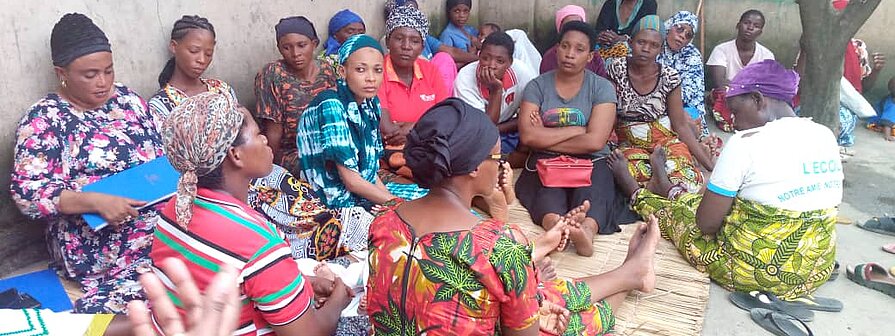Income Generating Measures and Social Cohesion for Women involved in Informal Trade in Burundi
Empowering Burundian women through entrepreneurship and financial inclusion
Today's Burundian women feel the need to take charge of their own destiny and engage in income-generating activities due to difficult living conditions. Many women in Bujumbura, with low levels of education, are involved in informal trade, buying fresh products at markets and selling them at higher prices in the city center. This significantly contributes to their family income. However, most of these women start their businesses with borrowed funds from Village Savings and Credit Associations (VSLAs), which charge high interest rates, and they face challenges due to the lack of a fixed place for their trade, often resulting in their goods being confiscated by law enforcement.
To address these challenges and further promote financial inclusion for Burundian women, the Development Cooperation Foundation of Baden-Württemberg in Germany (SEZ) funded a project that was implemented by the German Sparkassenstiftung Eastern Africa (DSIK), titled "Income-Generating Measures and Social Cohesion for Women Involved in Informal Trade". The project aimed to formalize the businesses of women engaged in informal trade in Bujumbura City, enhance their entrepreneurial skills, improve their access to formal financial services, and promote social cohesion, ultimately promoting economic and social inclusion. This one-year project was completed in December 2023.
Some of the key achievements of the project include the organization of the “Journey of Transformation”, where each participant was accompanied by her spouse or another mature family member in some of the activities. This collaborative approach enabled them to set household savings goals together, ensuring collective support for the financial education efforts and enhancing the likelihood of achieving their objectives. Furthermore, the project directly benefited 153 women and their spouses. Notably, 80% of the women successfully transitioned from informal to formal trade by establishing legally recognized commercial stands, 95% opened accounts in financial institutions, and 65% increased their savings.


